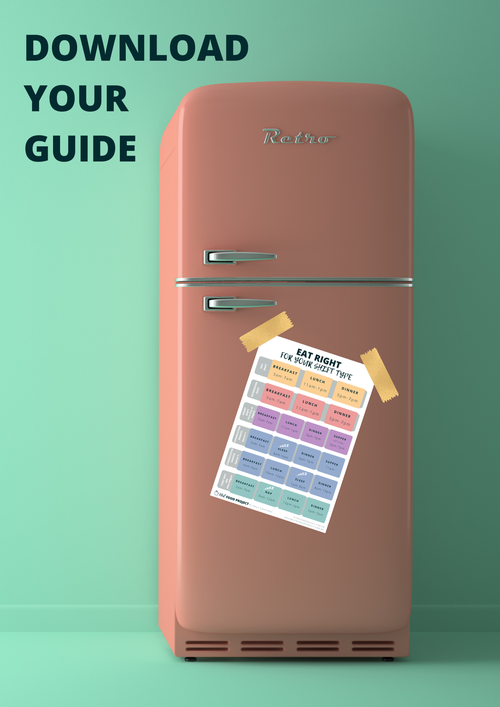Meal Timing Matters
Shift work is hard. I mean, it’s actually REALLY hard!
In my previous life as an Intensive Care and Anesthetic Nurse, I experienced all the pros and cons of shift work.
I only have come to realise now the toll that shift work took on my body (and I was only in the shift work game for 12 years).
One key factor of shift work that can make all the difference to how you feel during work, how you sleep when not at work, and how your body copes long term whilst doing shift work, is the timing of your meals.
Believe it or not, your pancreas releases insulin that coincides with circadian rhythms. Insulin sensitivity is also closely linked to circadian rhythms. With the rise and fall of melatonin and cortisol (your sleep vs wake hormones), your pancreas will also be on standby or asleep.
So what does this mean for you as a shift worker?
If you work multiple different shifts over the week (ie. some days, some afternoons and some nights), you should ideally eat with the sun, mimicking a ‘normal’ breakfast, lunch, dinner pattern.
If you tend to do long stretches of shifts, you will need to gradually shift your meals back as your circadian rhythms changes during your block of shifts.
If you’re one of those poor souls whose circadian rhythm stays on ‘day’ cycles despite being awake all night, it is important that you eat during ‘normal’ hours.
WHY?
When you eat, your body breaks down food into its nutrient components. Glucose, your body’s preferred energy source enters the bloodstream. It is then transported around your body for use by every single one of your cells. The trick is, that your cell walls need insulin to let the glucose into the cell to make energy.
Your pancreas has receptors that sense when glucose levels increase in your blood. This triggers your beta cells to release insulin - however - as your body prepares for sleep (which is signaled when the sun goes down, your pancreas also goes to sleep mode and won’t release as much insulin. To compound this, all your cells in your body also start to transition to ‘sleep’ mode and aren’t as responsive to insulin signaling as well.
This means, that even if you are eating, you won’t be able to shift the glucose efficiently into your cells for energy. This will result in increased blood glucose levels but the feeling of really low energy at the same time.
The consequences of increased blood glucose levels, even in non-diabetics, is nasty. Over time, your body will deposit the glucose in your liver and your fat cells, meaning you will easily increase body fat and run the risk of developing fatty liver disease.
SO WHEN SHOULD YOU EAT?
Here’s a quick guide:
You’ll notice there is no 4 am snack time!!! This is one of the biggest no-nos!!!
I hear you though… 4 am sucks. It’s that time when you feel like death would be a better option. Your body starts to really slow down as your metabolism slows up and craves sleep.
‘WHAT IF I REALLY JUST NEEEEED TO EAT?’
If you really must eat overnight, make sure it is a food that has protein and fiber and really stay away from the sugar. Aim for a well-cooked stew or soup that is easy to digest and is warm and comforting to your digestion.
WHAT SHOULD YOU EAT FOR MY REGULAR MEALS?
Make sure every meal has protein, vegetables, and a little fat. Yes, every meal. Add in some complex carbs (like rye bread or sweet potato) and some fruit if you like.
Aim to eat 3 meals a day only. During your short breaks, just sit and relax. Get some fresh air instead.
Want more specific guidance on what foods work for you and your body? I can absolutely help with that. Book a Nutritional Consult Here and chat with me about getting your meals on point.
I have done up a handy resource so you can print these times out for reference, to help you start your new eating patterns.


